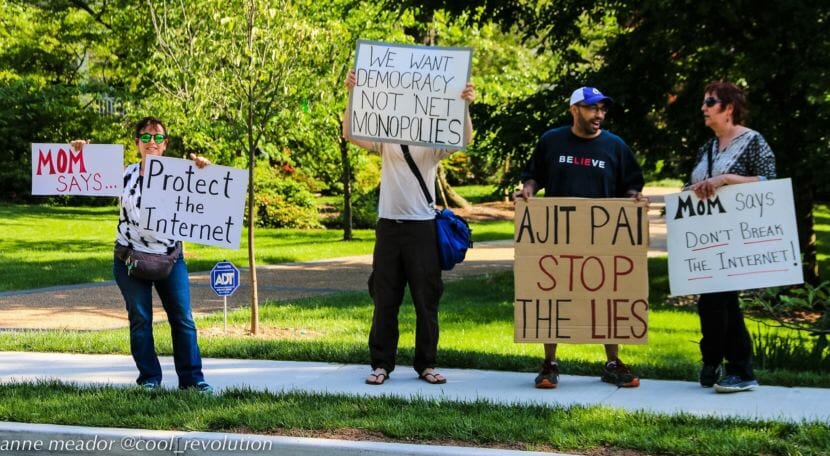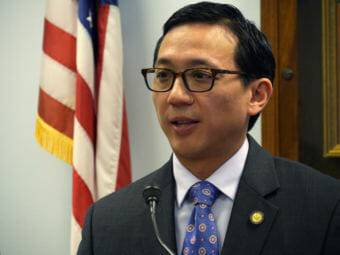
Alaska could join the ranks of states fighting to restore net neutrality. While the Walker-Mallott administration has no immediate plans, a state lawmaker does.
Rep. Scott Kawasaki doesn’t like what just happened to the internet. In particular, he’s opposed to the increased power telecommunications companies have over their customers.
“As it stands with repeal of net neutrality, it sounds like they’re going to have the ultimate hammer and be able to direct traffic and that’s simply not the way the internet was made great. And I think we can do better,” Kawasaki said.
The Fairbanks Democrat is preparing a bill addressing those concerns.

He hasn’t worked out all the details. But he said it will attempt to reverse the Federal Communications Commission’s recent decision on net neutrality.
“You couldn’t throttle down certain sites; certain sites wouldn’t be demoted or certain sites wouldn’t be enhanced. Basically, that every Alaskan would have the freedom to choose which site they’d like to go to without having it be essentially slowed down by the internet service provider,” Kawasaki said.
Gov. Bill Walker and Attorney General Jahna Lindemuth support the principles of net neutrality. In a letter to the FCC, they say unrestricted broadband internet is a lifeline for rural Alaskans. They point to telemedicine, distance education and other services that are provided online.
Atty. General Lindemuth and I are asking @FCC to delay their planned vote on #NetNeutrality regulations. Recent news of fake comment submissions causes us great concern; more time is needed to restore integrity to the process. pic.twitter.com/7HIkvyN9R3
— Governor Bill Walker (@AkGovBillWalker) December 14, 2017
The administration said it hasn’t determined what to do next. But Washington state has.
“We’re here to say that we are not powerless today and we will act to protect Washingtonians against violations of net neutrality,” said Democratic Gov. Jay Inslee, just before the FCC’s vote.
Inslee said the state can use its purchasing power to favor compliant companies. It can make access to utility poles more difficult for others. And it could permit public utility districts to offer retail broadband to increase consumer choice.
Fairbanks legislator Kawasaki said his bill will include some of the same terms. He’s also looking at similar legislation proposed in California.
Alaska’s two large internet service providers say they’ll maintain net neutrality, even if they don’t have to.
“We believe in a free and open internet,” said Heather Handyside of GCI, Alaska’s largest internet provider. “GCI’s always believed customers have the freedom to make their own choices on the internet. We do not impede or prevent or direct or in any way discriminate on the access that customers have,” she said.
GCI’s largest competitor said the same thing.
“We plan to continue offering unlimited internet, just as we always have. We do not prioritize internet traffic today and we don’t plan to do so in the future,” said Hannah Blankenship of Alaska Communications, which some know as ACS.
Kawasaki worries that could change if new providers join the Alaska market. Or, if either company is bought out by someone with a different approach.
But he understands there’s limits on what Alaska’s government can do.
“It looks like state laws and state statutes probably won’t hold up because the FCC and the federal government and Trump, specifically, said that states would not have any power or authority, even if it’s within their own state,” he said.
The FCC decision’s backers say it will increase competition, which could lead to better service and lower rates.
Kawasaki doesn’t expect either to happen in Alaska.
Northwest News Network’s Tom Banse contributed to this report.
